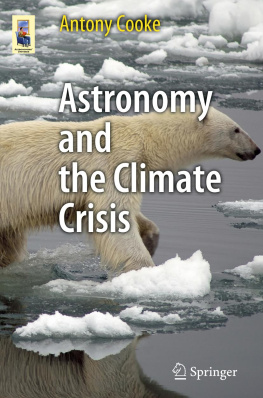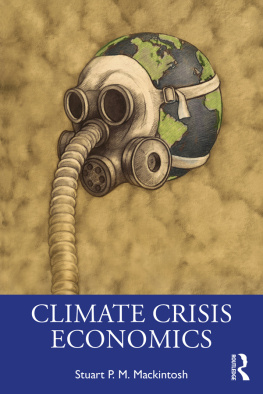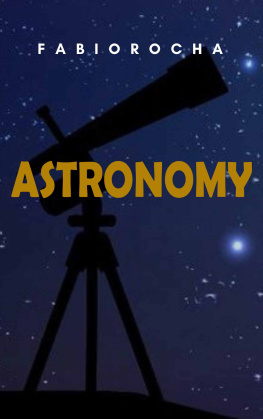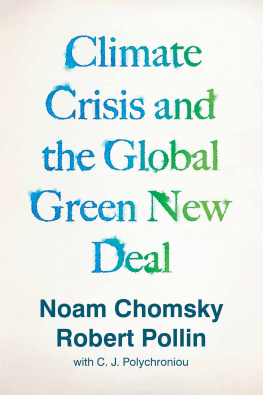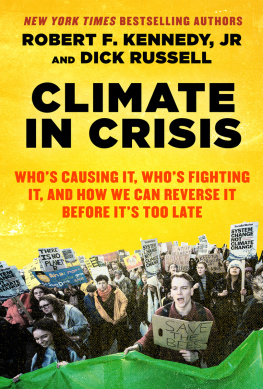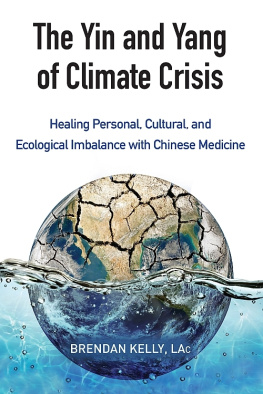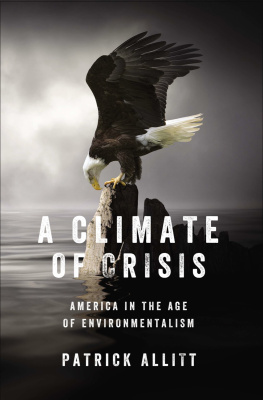Antony Cooke Astronomers' Universe Astronomy and the Climate Crisis 2013 10.1007/978-1-4614-4608-8_1 Springer Science+Business Media New York 2012
1. The Astronomical Connection
Anyone who doubts that there is any point in discussing any further the matter of climate change should take a look at NASAs own website []. The section entitled Uncertainties: Unresolved Questions about Earths Climate disavows any sense that we do indeed know everything. While described almost casually as just a few other important uncertainties about climate change, it is a concise description of many hugely significant factors often cited by some to be understood with certainty! It is not as if NASA has minimized these issues, but they do point to a possible connection to astronomical research. And because the space agency is heavily involved in climate research, we should realize that astronomy is a growing part of it.
Halting global warming requires urgent, unprecedented international cooperation, but the needed actions are feasible and have additional benefits for human health, agriculture and the environment.
James Hansen, 2003
Director, Goddard Institute of Space Sciences
We should always keep in mind that the focus of most mainstream climate change research revolves around human-induced causes of climate change (AGW, Anthropogenic Global Warming), and the corresponding increased levels of atmospheric carbon dioxide (CO2). Michael J. Dougherty, in an eloquently stated and wide reaching opinion piece [], noted that climate science is a multidisciplinary field, which includes ecology, chemistry, geology, glaciology, meteorology, atmospheric science, marine biology, volcanology, computer modeling, as well as many other disciplines. All in all quite a complex recipe, and one that has seen its fair degree of heated dialog exchanges. However, Dougherty, clearly convinced of AGW theories, made great efforts to be conciliatory and fair to scientists of every view. In assessing and stating his position, his article is not out of line with similarly fair-minded proponents.
However, maybe Dougherty will allow us one little caveat. Upon reading the various scientific fields that he lists, it is interesting that one discipline has been omitted from the mix astronomy. We can only presume this is not a deliberate slight. It is probably not an oversight, either, but a genuine reflection of how he sees the makeup of applicable fields in climate research. However, it is striking that the one missing element is seen increasingly by a growing number of researchers as a significant component of climate science. It will remain the focal point of this book.
All the evidence I see is that the current warming of the climate is just like past warmings. In fact, its not as much as past warmings yet, and it probably has little to do with carbon dioxide, just like past warmings had little to do with carbon dioxide.
William Happer, 2009
Princeton University
Some serious scientists pursuing possible astronomical connections to climate change effectively find themselves questioning the IPCC position discussed in the preface of this book. Unfortunately and by default, they remain tied to and somewhat unkindly lumped in with all climate skeptics. Others have complained that the IPCC has left astronomers and astronomy out of the equation, which does seem fair in light of the panels scant reference to most studies that theorize astronomical links to climate. Still more scientists believe their more recent studies have demonstrated convincingly that astronomical links to climate are indisputable. Whether the IPCC ultimately deems them to be valid or not, it seems they have barely been referenced at all.
As we proceed, we will examine the underlying fundamental physics and mechanics known and projected of climate itself. These are essential to our understanding of the greater picture. But also we will look to the stars. A sizeable volume of serious climate research has implicated forces beyond our local Earthly environment, information that generally has not been presented to the public at large. Additionally, there are numerous peer-reviewed astronomical/climate studies in many of the most important and relevant of scientific journals that encompass often-startling concepts. Even the IPCC acknowledges certain astronomical tenets (albeit limited in scope).
Although not every researcher is looking to the skies for external explanations for recent changes in the climate, certainly every scientist understands how Earths place in the cosmos indeed does impact the conditions in which we live. The question is whether such external factors have any role in the observed warming in the late twentieth century. It is a good question, even though many have already concluded that such factors do not. However, because the recent warming does not appear to fit normal patterns, it is reasonable that it be investigated for any possible explanation or factor.
Obviously, astronomical research into climate includes the variable output of the Sun, what may be behind it, and what this may or may not imply for Earths climate. Additionally and more interestingly, there are the Suns possible indirect effects on climate, other than the direct heating processes we already know about. Further research has been done concerning other possible local factors and possible secondary responses from influences far outside our environment, ultimately affecting the climate (and producing tangible effects on water vapor concentrations, cloud cover, melting icepacks, changes to ocean movements, heat storage, etc.).
Within the Solar System, studies have included the potential influences of cyclic, orbital and precessional effects, not only of the Sun/Earth/Moon system but all of the planets together and separately. This includes possible forces and events we do not yet understand. Further, there are solar magnetic flux variations that may control certain complex mechanisms, and their theorized but yet unproven effects on Earth.
Beyond these, we cannot blindly ignore without investigation even what may seem to be truly farfetched the effects of cosmic rays from deep in the Milky Way Galaxy, possible consequences of the Solar Systems place in the galaxy, or movement through regions of meteorite debris, dust, or dense interstellar matter. Could there be other yet undetermined galactic forces, or the interactions of these with any other factor(s) previously mentioned? Most of these have been subjects of numerous research papers.
How did Earth, Venus and Mars wind up so radically different from similar origins? How could Mars have once been warm enough to be wet, but be frozen solid now?
These questions revolve around climate and the intersection of climate, atmospheric chemistry and, on Earth, life.
NASA
We can speculate, too, on the possible result of a galactic merger, whereby we might find ourselves in the midst of starburst activity, with the accelerated, super-heated star cycles that are known to result. At least in regard to recent climate warming, such starburst theories can readily be set aside, as the research paper by Brian. A. Keeney et al. aptly demonstrates [], although it makes for fascinating reading. We will explore whether any of the remainder can be tied to the observations of recent climate change on Earth or if they remain just fanciful ideas in search of legitimacy.

